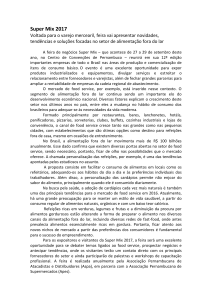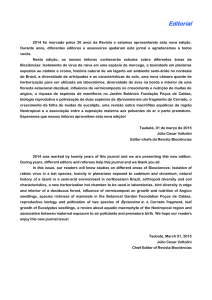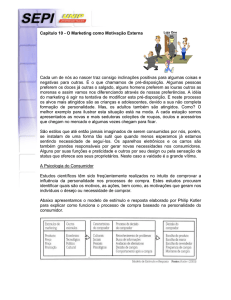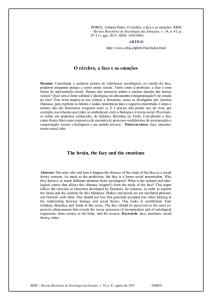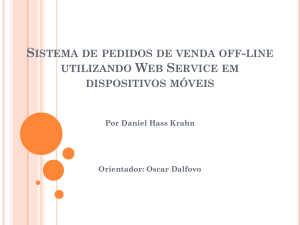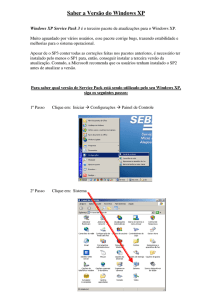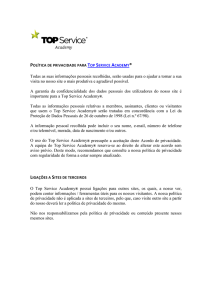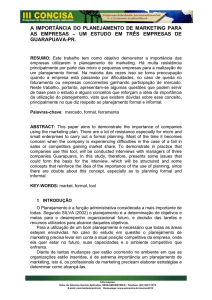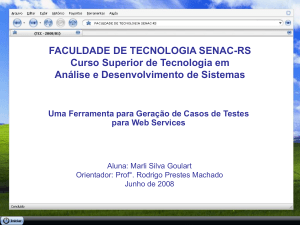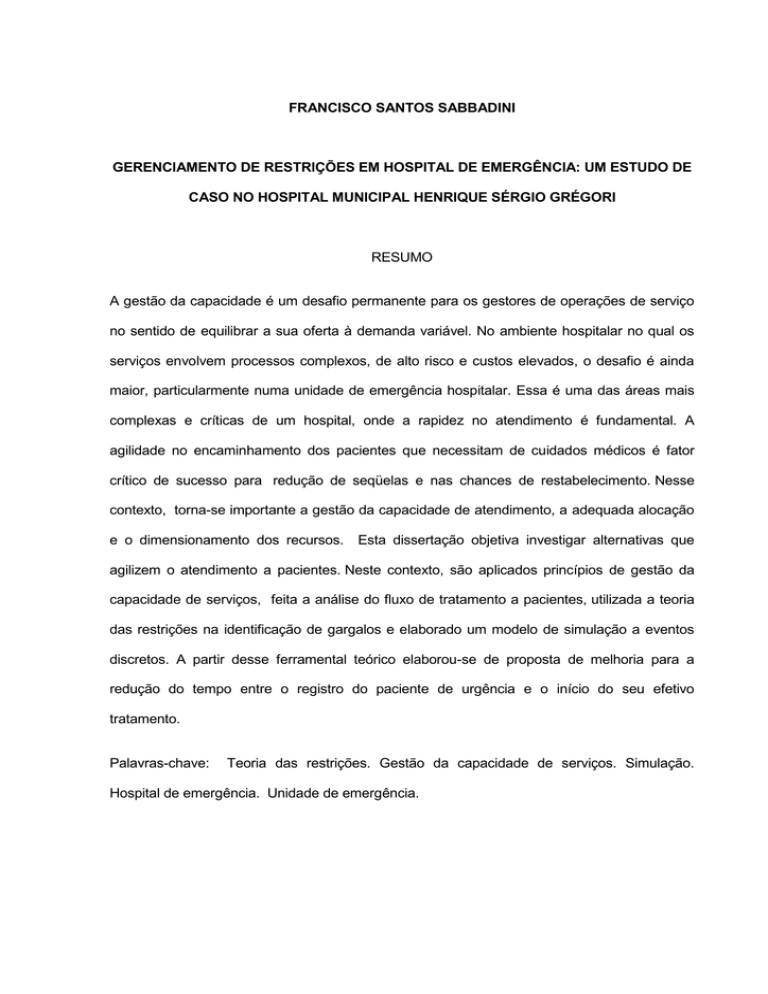
FRANCISCO SANTOS SABBADINI
GERENCIAMENTO DE RESTRIÇÕES EM HOSPITAL DE EMERGÊNCIA: UM ESTUDO DE
CASO NO HOSPITAL MUNICIPAL HENRIQUE SÉRGIO GRÉGORI
RESUMO
A gestão da capacidade é um desafio permanente para os gestores de operações de serviço
no sentido de equilibrar a sua oferta à demanda variável. No ambiente hospitalar no qual os
serviços envolvem processos complexos, de alto risco e custos elevados, o desafio é ainda
maior, particularmente numa unidade de emergência hospitalar. Essa é uma das áreas mais
complexas e críticas de um hospital, onde a rapidez no atendimento é fundamental. A
agilidade no encaminhamento dos pacientes que necessitam de cuidados médicos é fator
crítico de sucesso para redução de seqüelas e nas chances de restabelecimento. Nesse
contexto, torna-se importante a gestão da capacidade de atendimento, a adequada alocação
e o dimensionamento dos recursos.
Esta dissertação objetiva investigar alternativas que
agilizem o atendimento a pacientes. Neste contexto, são aplicados princípios de gestão da
capacidade de serviços, feita a análise do fluxo de tratamento a pacientes, utilizada a teoria
das restrições na identificação de gargalos e elaborado um modelo de simulação a eventos
discretos. A partir desse ferramental teórico elaborou-se de proposta de melhoria para a
redução do tempo entre o registro do paciente de urgência e o início do seu efetivo
tratamento.
Palavras-chave:
Teoria das restrições. Gestão da capacidade de serviços. Simulação.
Hospital de emergência. Unidade de emergência.
FRANCISCO SANTOS SABBADINI
GERENCIAMENTO DE RESTRIÇÕES EM HOSPITAL DE EMERGÊNCIA: UM ESTUDO DE
CASO NO HOSPITAL MUNICIPAL HENRIQUE SÉRGIO GRÉGORI
ABSTRACT
The management of capacity is a permanent challenge for the managers of service operations
aiming at balancing their offer to the variety in demand. In the hospital environment, where the
services involve complex processes of high risk and costs, the challenge is still grater,
especially in a unit of hospital emergency. This is one of the most complex and critical areas of
a hospital, where the service efficiency is fundamental. The speed in guiding the patients who
need medical care is a critical factor for successful reduction of damages and for possibilities of
recovery. In this context, the management of service capacity becomes important, as well as
the adjusted allocation and sizing of resources. The aim of this thesis is to investigate
alternatives that speed up the service offered to patients. In this context, principles of
management of the capacity of services are applied, the flow of patients’ treatment is analyzed,
the theory of the Constraints in the identification of bottlenecks is used and a simulation model
of unremarkable events is made. Based on these theoretical tools, a proposal of improvement
for the reduction of the time between the register of the urgency patient and the beginning of
his/her effective treatment has been drawn up.


